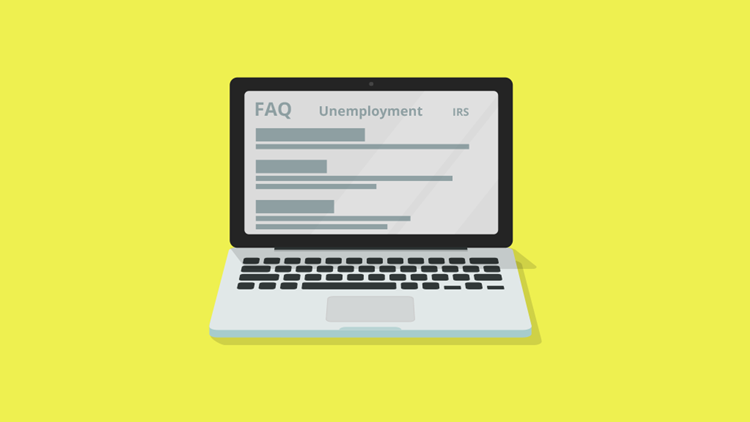
The Internal Revenue Service has issued a new set of frequently asked questions (FAQs) covering the unemployment compensation exclusion for the 2020 tax year.
One question/answer is brand new brand new and another nine answers have been newly updated, reflecting new dates or new information available.
The updates are laid out in Fact Sheet FS-2022-21, which is available on the IRS website.
New information on delayed compensation
The new information revolves around delayed payments of unemployment compensation. For example, if a taxpayer was unemployed in 2020, but payments were delayed until 2021, would the taxpayer still qualify for the exclusion?
The Fact Sheet makes it clear that the answer here would be no. Unemployment compensation relief is made possible through the American Rescue Plan, which limits this relief to unemployment payments actually received in 2020. Unemployment compensation payments received in any other year just aren’t covered.
Some of the other topics now carry updated answers reflecting revised or updated information. One such update concerns taxpayers who have already filed their 2020 income tax returns, but want to report the unemployment compensation exclusion.
One of the updated sections poses the question if the unemployment compensation exclusion means taxpayers can get the exclusion’s full $10,200 as a cash refund. The Fact Sheet is clear that because the exclusion is not refundable, there won’t be a direct payout, although it will likely lessen a taxpayer’s tax liability. This could lead to a refund due to overpayment of tax.
The Fact Sheet also says taxpayers generally don’t need to file an amended tax return in order to claim the unemployment compensation exclusion, unless they’re entitled to a credit or deduction they didn’t claim on their 2020 return.
The IRS says it started reviewing 2020 returns in May 2021 and the process is continuing. The Fact Sheet says taxpayers have no worries about missing the exclusion if they’ve already filed for 2020.
“If you already filed your 2020 tax return, we’ll determine the correct taxable amount of unemployment compensation and tax. We’ll also adjust any non-refundable or refundable credits you reported on your return that are impacted by the exclusion and issue any refund due,” the Fact Sheet states.
“In addition, if you did not claim the Recovery Rebate Credit or the Earned Income Tax Credit with no qualifying children on your tax return, but you are now eligible when the special unemployment exclusion is applied for tax year 2020, you do not need to file an amended 2020 tax return. If you are now eligible, the IRS will calculate these credits for you and include them in any overpayment and any refund due.”
Some of the topics covered by the new and updated information include amended returns (Form 1040-X); Impact to Income, Credits and Deductions; Receiving a Refund, Letter or Notice; and Economic Impact Payments.
The IRS says these FAQs are updated so that general information can be relayed to taxpayers and tax pros in the quickest manner possible. But the agency cautions that FAQs should not be used as reliable source of tax law, or used as a basis for legal positions before legal bodies such as the Tax Court. The IRS has more information about relying on FAQs.
Sources: IRS revises frequently asked questions on 2020 unemployment compensation exclusion; Fact Sheet FS-2022-21
